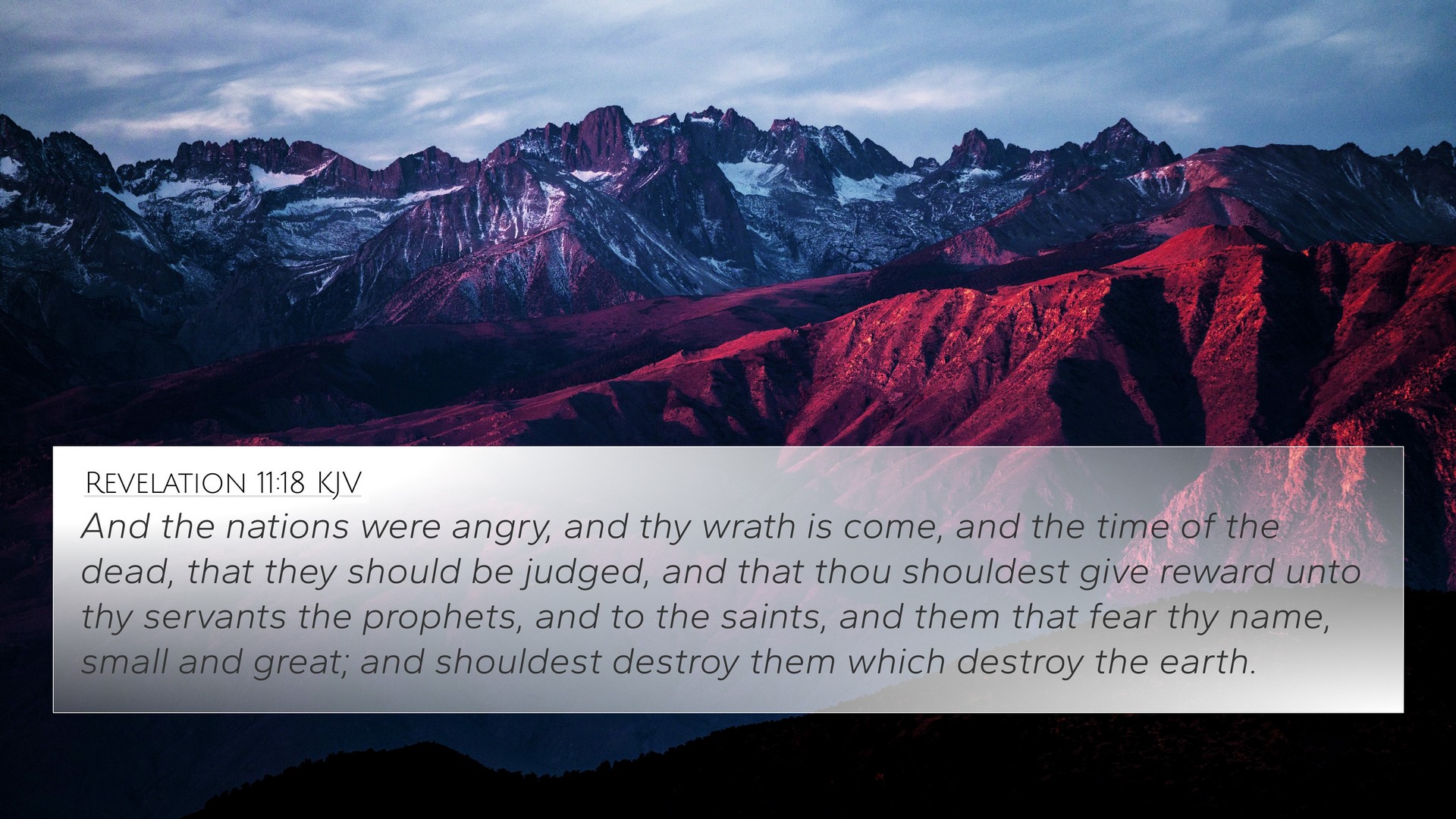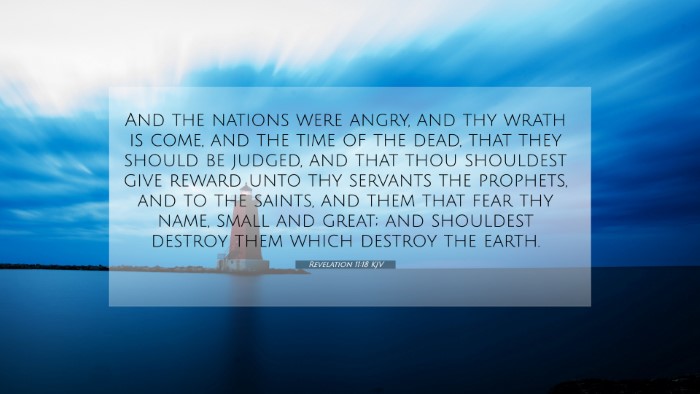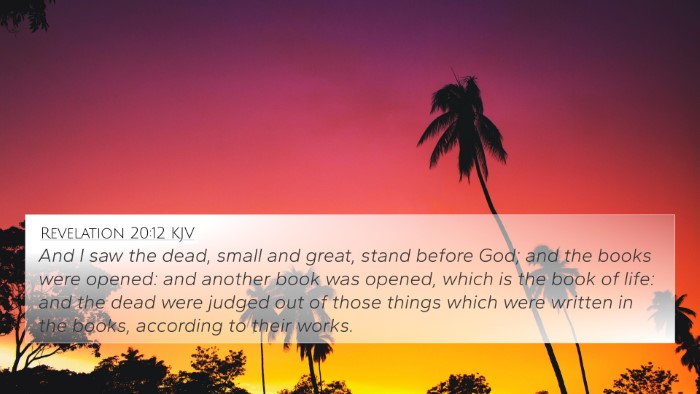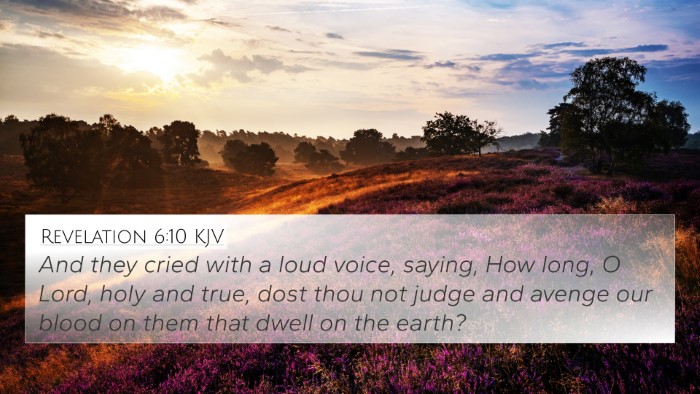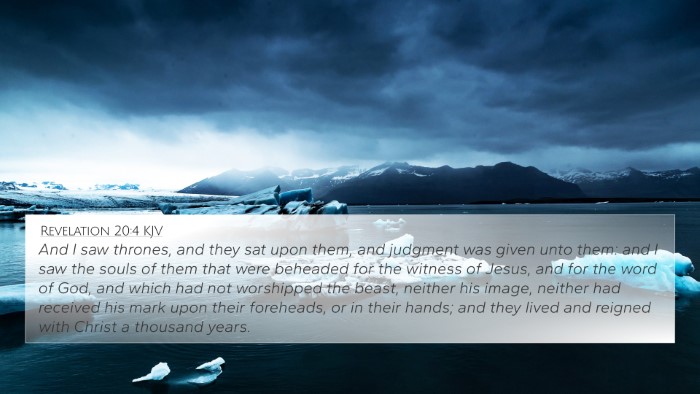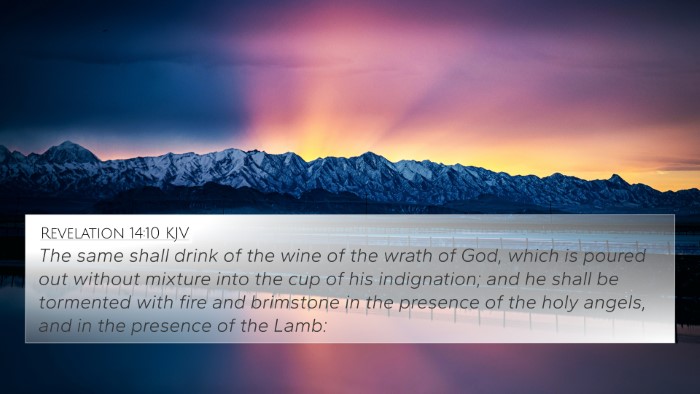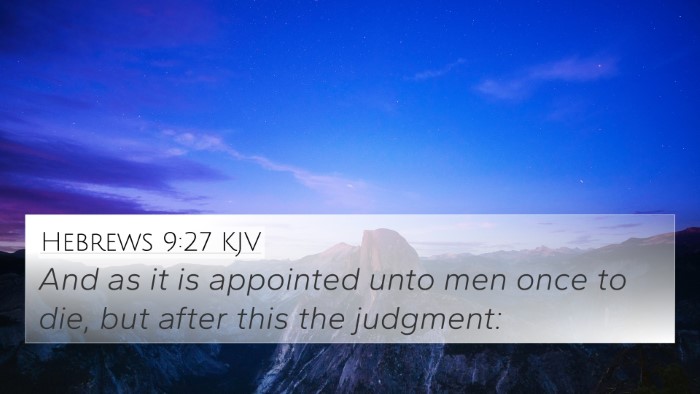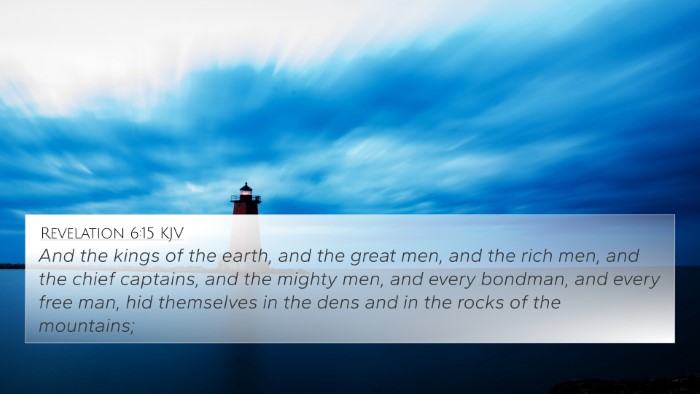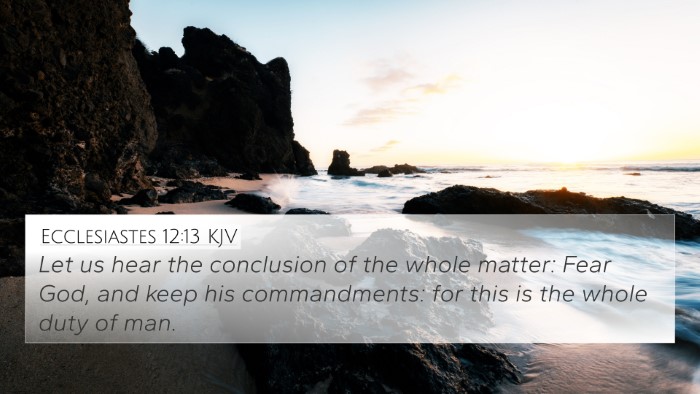Understanding Revelation 11:18
Revelation 11:18 states: "The nations were angry, and Thy wrath is come, and the time of the dead, that they should be judged, and that Thou shouldest give reward unto Thy servants the prophets, and to the saints, and them that fear Thy name, small and great; and shouldest destroy them which destroy the earth."
Summary of Insights
This verse from the Book of Revelation carries profound implications regarding God's judgment and the ultimate accountability of humankind. Below is a compilation of insights drawn from notable public domain commentaries by Matthew Henry, Adam Clarke, and Albert Barnes.
Key Themes
- Divine Wrath: The anger of the nations reflects a rebellion against God's authority.
- Judgment of the Dead: The verse emphasizes the certainty of divine judgment.
- Reward for Faithfulness: It assures the prophets and saints of their rewards.
- Destruction of the Earth: The warning against environmental degradation and its consequences.
Detailed Commentary Analysis
Matthew Henry's Commentary:
Henry explains that the wrath of God is a response to the anger of the nations. The judgment signifies a definitive moment where God's authority prevails, and there is a separation of the righteous from the wicked.
Albert Barnes' Notes:
Barnes emphasizes the timing of this judgment, suggesting it is inevitable, reflecting the prophetic assurance that divine justice will eventually manifest. He notes that God's servants are to be rewarded as they have remained faithful amid adversity.
Adam Clarke's Commentary:
Clarke offers insights into the destruction linked to the earth's abusers and highlights the broader implications of this judgment. He stresses the theme of accountability, underscoring that all will face divine examination of their deeds.
Connecting Themes and Cross-References
To enhance understanding, this verse can be connected to various Scripture passages that reinforce its message, offering a rich tapestry of divine truths. Here are key cross-references:
- Isaiah 26:21: "For behold, the Lord cometh out of His place to punish the inhabitants of the earth for their iniquity."
- Matthew 25:31-46: The sheep and the goats judgment demonstrates the separation based on one's deeds.
- 2 Corinthians 5:10: "For we must all appear before the judgment seat of Christ; that every one may receive the things done in his body, according to that he hath done."
- Revelation 20:12: Describes the great white throne judgment where the dead are judged according to their works.
- Psalm 96:13: A psalm declaring that the Lord comes to judge the earth, aligning with the theme of divine retribution.
- Matthew 12:36: Jesus speaks of every idle word being accounted for on the day of judgment, highlighting the theme of responsibility for speech.
- Romans 14:10-12: "For we shall all stand before the judgment seat of Christ..." further solidifies the theme of individual accountability.
Comparative Bible Verse Analysis
Engaging in comparative Bible verse analysis allows believers to deepen their understanding of similar themes present throughout Scripture. This process enhances thematic connections:
- Linking Divine Judgment: Examining parallels such as Revelation 20:11-15 enhances understanding of final judgments.
- The Role of Prophets: Cross-referencing verses about prophets (e.g., Jeremiah 23:32) reveals insights about God's messengers.
Tools for Bible Cross-Referencing
Utilizing tools for Bible cross-referencing can significantly aid in scriptural studies:
- Bible Concordance: Indexes of words to easily find verses related to specific themes.
- Cross-reference Bible Study: Engaging in studies that focus on connected verses enriches biblical literacy.
- Bible Cross-reference System: Systems that categorize verse similarities provide a structured approach for study.
Conclusion
Revelation 11:18 serves as a powerful reminder of the reality of divine judgment, the assurance of rewards for the faithful, and the consequences of rejecting God's authority. By engaging in scriptural cross-referencing, readers can navigate the intricate connections between the Scriptures, enriching their spiritual understanding and applying these truths in their lives.
In studying the Bible, understanding context, cross-references, and thematic connections plays a crucial role in deriving meaning. By reflecting on passages such as Revelation 11:18 and its related verses, believers are equipped to face the future with faith and hope.
